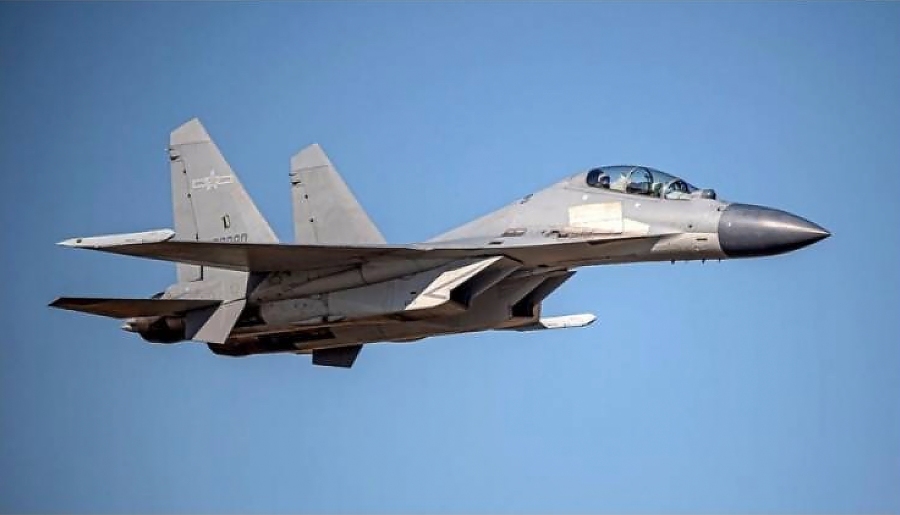Just In | The Hill
The continuing erosion of America’s manufacturing capacity and its deepening dependence on China pose unacceptable risks to our nation’s health, prosperity, capacity for self-defense, and ability to support friends and allies. Although these dangers are more widely acknowledged today than they were only a few years ago, the steps taken to address them thus far have been insufficient. A more comprehensive and coordinated approach is urgently required.
At the height of the COVID pandemic, many Americans learned for the first time that the manufacture of personal protective equipment and the active pharmaceutical ingredients used in many life-saving medications largely has been outsourced to China. Factory shutdowns, snarled supply chains, and hoarding by Chinese companies also contributed to a global semiconductor shortage that forced cutbacks in U.S. auto manufacturing. China today dominates the production of many of the rare earth minerals needed to make the products that will power a global energy transition. Chinese Communist Party (CCP) officials have threatened repeatedly to weaponize the supply chains they control, warning that they could suspend critical exports to countries that refuse to do their bidding. If nothing changes and Beijing someday follows through on these threats, the effects on our society and economy could be catastrophic.
The war in Ukraine has revealed a further vulnerability: U.S. defense contractors lack the capacity to rapidly ramp up production of everything from missiles to radios. To make matters worse, some of the components and materials needed to manufacture this equipment are imported from China. A suspension of key exports during a period of rising tensions would make it even more difficult to mobilize industry and expand our military capabilities. If war breaks out, it likely will be far more intense and destructive than the fighting in Ukraine, rapidly burning through existing weapons stockpiles. Without adequate manufacturing capacity, in just a few weeks our forces could run out of the arms and ammunition they need to stay in the fight.
What once might have seemed a distant prospect is now a very distinct possibility. According to Secretary of State Antony Blinken, Xi Jinping has moved up the timeline for annexing Taiwan and the chief of the U.S. Navy recently warned that war could come as early as this year.
The United States must greatly accelerate its efforts to reduce dependence on critical imports from China and enhance our capacity for defense mobilization. Doing this will require better information and more comprehensive and realistic planning. In its annual report, the U.S.-China Economic and Security Review Commission therefore recommends that Congress direct the Biden administration to create a White House-level Economic and Security Preparedness and Resilience Office. This new office would have two tasks:
Recent reports by Commerce, Energy and other departments have produced useful snapshots of import dependence in a few key sectors, including semiconductors, drugs and minerals. But the U.S. government still lacks broad, deep and sustained visibility into the nation’s rapidly evolving critical supply chains. A dedicated Mapping Unit would address this shortcoming, working with other agencies and the private sector on an ongoing basis to collect data and refine analytic tools, monitor select supply chains, identify vulnerabilities and propose remedies, as needed.
A future war with China would pose unprecedented challenges, not only to America’s armed forces but to the nation’s defense industrial base and, indeed, to our entire economy. Despite recent talk of possible imminent conflict, Congress and the executive branch have only just begun to come to grips with the full magnitude of the problems that would ensue. A Defense Mobilization Unit in the Executive Office of the President would help to speed and steer this process across all relevant agencies.
Such a unit would assess requirements for weapons, munitions and other supplies and equipment needed to sustain U.S. and partner forces in a range of plausible scenarios, including those in which trade with China is effectively cut off and fighting drags on for many months. These requirements would provide the basis for assessing the adequacy of existing stockpiles and productive capacity and identifying investments that are needed now to prevent devastating future shortfalls.
The trends that created our present vulnerabilities have been many years in the making; they have been ignored for far too long and will not be reversed cheaply or overnight. We need to act, but we must do so in ways that are informed if they are to be effective. There is no time to waste.
Aaron Friedberg and Michael Wessel are members of the bipartisan U.S.-China Economic and Security Review Commission. The views expressed are their own and not intended to reflect those of other commissioners.
National Security, Opinion Read More
Author Profile
Latest entries
 ScienceSeptember 20, 2024What do young voters think about the 2024 election?
ScienceSeptember 20, 2024What do young voters think about the 2024 election? HeadlinesSeptember 20, 2024‘Bachelorette’ finalist Devin Strader addresses past arrest reports: ‘I know that I have made mistakes'
HeadlinesSeptember 20, 2024‘Bachelorette’ finalist Devin Strader addresses past arrest reports: ‘I know that I have made mistakes' ScienceSeptember 19, 2024Deadly snail venom could make diabetes medicines better
ScienceSeptember 19, 2024Deadly snail venom could make diabetes medicines better HeadlinesSeptember 19, 2024Video shows former Dodgers pitcher Julio Urías's domestic violence incident outside MLS match in 2023
HeadlinesSeptember 19, 2024Video shows former Dodgers pitcher Julio Urías's domestic violence incident outside MLS match in 2023

